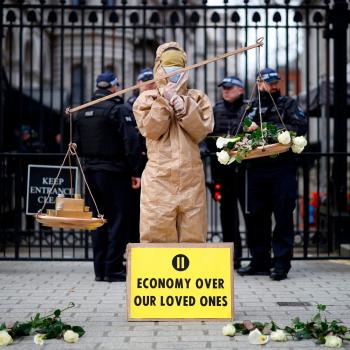The Conservative…
The focus on laws, legalities, and morality is essentially why they were labeled as the “moral majority.” By definition, a fundamentalist is “a person who believes in the strict, literal interpretation of scripture…”
Many of us today might recognize them as “conservatives,” those who align politically with the “right,” or plain out evangelical… I don’t want to ironically reduce an ideology by calling them reductionistic but, it’s kind of pre-assumed when they’re classified as fundamental.
But, in regard to drinking their answer, some might say, is “cut and dry” for better or worse teaching that drunkenness, “Yes, it’s absolutely a sin…”
Verses such as Ephesians 5:18; Proverbs 20:1, 23:20, 29–32; Isaiah 5:22… are all used as a means to say, “unequivocally” that drinking is, in fact, a sin… Just copying and pasting what “gotquestions.org” says about this:
“Answer: Getting drunk, tipsy, or even moderately affected by alcohol is clearly prohibited in the Bible (Proverbs 20:1; 23:20; 29–32; Isaiah 5:22; Ephesians 5:18). There are many commands in Scripture about behaviors to avoid, such as drunkenness, sexual immorality (1 Corinthians 6:18), and lying (Proverbs 6:16–17).
The “Liberal”…
On the flip side of the same coin there are those of us labeled as “liberals” (aka progressives).
But, what’s funny here is that what we’re preaching isn’t “liberal” so much as it’s traditional.
Drinking is embedded within and throughout the culture that is defined by Church history…
For instance..
If you’re Catholic or in a more traditional protestant church perhaps you’ve seen pastors, priests or the “Eucharistic Ministers” drink the remaining wine after communion has been passed.
They do this because they believe that this wine is the literal blood of Christ’s; as I’m not Catholic I’ll let an active priest explain this:
“Through this very wine God came to us and gave us Christ?s body and blood.? Through this very wine God offers and gives to us forgiveness, life, and salvation.? This consecrated wine has been part of this wonderful sacrament; God has worked through it to come to us and give us his eternal blessings… What then ought we to do with this remaining wine?? Given the high purpose and value God has given to it, we will want to treat this wine with reverence and respect.? We believe that through this very wine God has been present for us?to give us forgiveness.? When we comprehend this great blessing given to us through the wine, we stand in awe and reverence before God. [sic][1]”
So, this begs the question: what happens if there’s an entire bottle of wine left? In some traditions stronger wine is used in these instances; correct me if I’m wrong, but I’ve been told it’s because when you share a cup or drink from the same bottle stronger wine will kill off germs and can even play as an anti-bacterial…
They drink it out of respect and reverence towards God’s sacrifice of his Son.
Are they then living in sin? Does this count as an exception or a “loophole”?
Then, of course, there’s the marriage at Cana in which Christ infamously turned barrels of water into wine – to be clear, they’d already run out of wine.
“We discovered that by the Roman age, people on average drank 100 gallons of wine a year. The biblical writers mention wine over 235 times and it was one of the largest economic sources in the ancient Near East and Mediterranean culture.”












